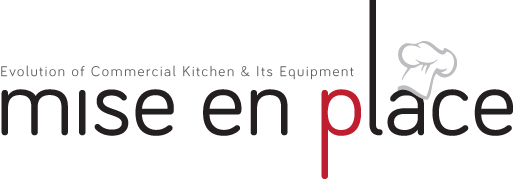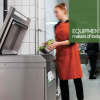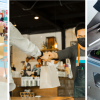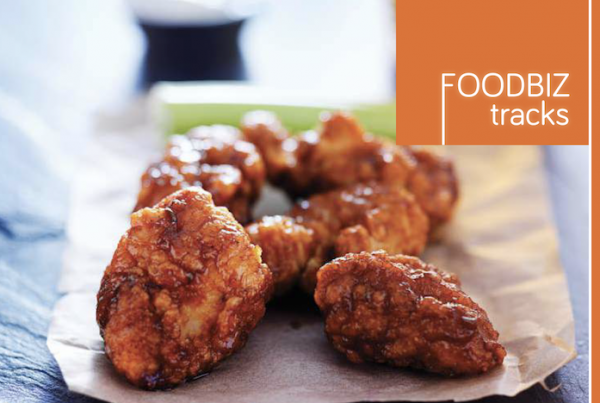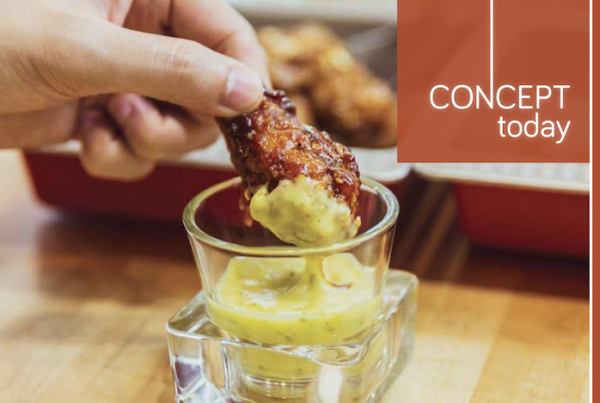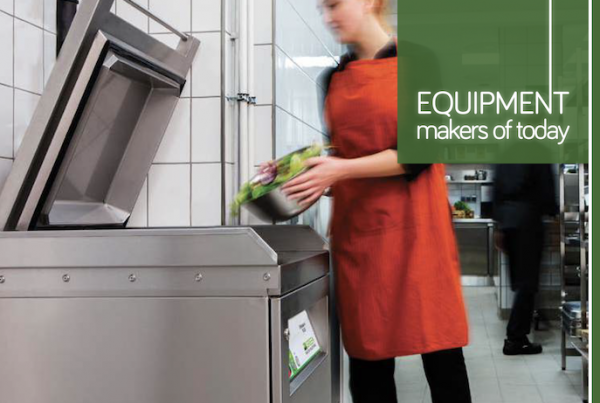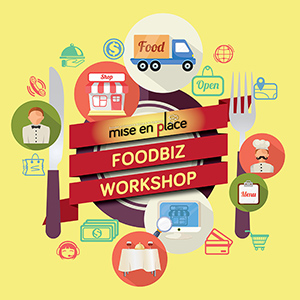Over the last few months, we sent out a number of questions to our partners in the F&B industry to seek their thoughts and views on how the industry is doing, where it stands at present and how it can move forward in this time of a virus outbreak. Pulling in our partners from various sectors – LEVELS Studio on design, Meiko, T&S Brass & Bronze and Winterhalter on hygiene, Welbilt and RATIONAL on kitchen operations and productions and Halton on the environment – we managed to gather a wide scope of views from them on how Covid-19 will change the industry based on their respective areas of expertise.
If we look towards the ASEAN region, countries in SEA are in various different stages of the pandemic – some are facing their second or even third wave while others are still fighting their first wave. Regardless of which stage you are at, it is important that we work together as a group towards a common goal so that we can recover safely and hopefully, get things back on track, albeit with a few new rules in the game.
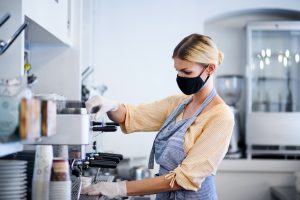

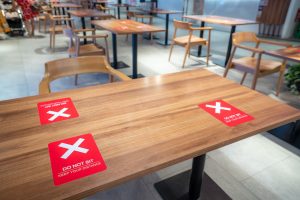
OBSERVATIONS FROM INDUSTRY PARTNERS –
Q&A SEGMENT
The 3 main questions that we posed to our industry partners were:
- Q1 – Most markets around the world were forced to stop, slow down or close due to the pandemic with tourism and hospitality gravely affected.Now that markets are reopening, what do you think will be the biggest change and hurdles in these sectors?
- Q2 – For your sector, would there be drastic changes in the demand of products or type of products? If so, why?
- Q3 – Moving forward, how can brands help to rebuild the industry?


BEN GREGOIRE – Principal, LEVELS Studio
A1: In my opinion, the biggest changes in these sectors are increased hygiene expectations from guests. While I think temporary measures like temperature scanning and masks will wear off over time, design solutions like sneeze guards and hand sanitizing stations will become the norm in most F&B establishments. It will be our challenge, as designers to seamlessly integrate them into restaurant and bar design without making the restaurants feel clinical or sterile. As for the hurdles, profitability will be the biggest challenge for restaurants and bars to overcome. Prior to the pandemic most F&B operators were working on razor thin margins to begin with and now they face a number of social distancing restrictions that will limit their ability to reach enough covers to turn a profit.
A2: We are listening to our clients and partners and for the moment, there haven’t been any demands for drastic changes in design yet. Hygiene standards and sanitization requirements are on the forefront of everyone’s minds and I suspect that there will be an increase in request for equipment like air purifiers, sterilizers, and sneeze guards etc.
A3: We have to support the industry that we work in. It’s not all about the big, illustrious projects. Eat local. These restaurants and bars are the backbone of our culture in many cities and they need more support than large international chains.

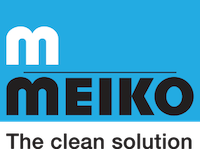
RUDOLF KITZBICHLER – Managing Director, MEIKO Clean Solutions (SEA) Sdn. Bhd.
A1: It is obvious that cash flow will be biggest hurdle for nearly every industry. The next hurdle will then be how to restart and how to operate under the new circumstances. There is a lot of uncertainty and future that is quite unpredictable for the moment. If there is really to be a new norm, there will be additional costs for all industries specifically for the hospitality industry, which will most likely result in an increase of prices. There will also be a total change in trends, for example, before the pandemic; there was a trend for gathering at a restaurant and practicing an open kitchen concept. Now, the opposite may happen with social distancing and, the delivery business through a closed kitchen. Other changes that can be expected are of course, an increased need for hygiene practice and cleanliness.
A2: Being a part of the cleaning and disinfection industry, there is, of course, a different understanding of customers looking for our cleaning solutions nowadays. While before it was a “good to have”, now it is a “MUST have”, proper cleaning and disinfection. The standards of our warewashing machines are also increasing, and this will most likely move away from the trend “just wash” result to a “hygienic disinfecting washing” result. MEIKO has reacted to this and like always, continues to be an industry forerunner by certifying all our warewashing solutions on the effective inactivation of corona viruses including COVID-19. We are truly benefitting now that our solutions are also used in the medical disinfection industry, and that hygienic cleaning result was before COVID-19, our main aim.
A3: Re-building the industry will take some time as there are multiple factors involved. As a cleaning industry brand, we will indeed have a major part to play in helping the rebuilding process, which we are doing, by first and foremost, giving our industry partners assurance that their staff and guests are safe, and that their business is protected and in good hands. It would now be absolutely counterproductive for businesses and the industry to rely on products which are not able to achieve the hygiene protocols with water temperature and overpromising like washing without water. Hygiene is the key!


EVA-MARIE FOX – Vice President of Marketing , T&S Brass & Bronze Works, Inc.
A1: The COVID-19 pandemic has sparked a public focus on hand hygiene like never before. That means that operators need to be ready to provide clean, healthy environments to keep customers feeling safe. Simple, effective changes like more handwashing stations and switching to hands-free washing can make a big difference in helping protect public health.
A2: Hands-free sensor faucets have been on a gradual rise for years as operators realized their benefits in both hygiene and water conservation. The COVID-19 pandemic has amplified that trend many times over. Being able to wash hands without touching faucet handles is really significant right now. T&S is proud to help provide these critical safety products to operators all over the world.
A3: With the increasing focus on hand hygiene in the wake of the coronavirus pandemic, there’s been an intense interest in sensor faucets for nearly every kind of handwashing situation out there. By removing potentially contaminated touchpoints, sensor faucets help boost hygiene and protect public health at a critical time.


KAREN FONG – Managing Director, Winterhalter Malaysia & SEAN MOORE – Regional Director, Winterhalter SEA
A1: In the medium to long term, there will need to be an emphasis on domestic tourism. Hospitality businesses will not be able to rely on international visitors for quite some time. Government assistance schemes, for example, the hospitality credits being offered in Singapore to get people back out and dining again will be critical in kick-starting the industry again. There is already a discernible change in dining habits. Home delivery is more popular now than ever and this is likely to grow. The industry as a whole will face the challenge in figuring out how to reassure guests that their product/service is safe and that customers can then return. The new norm has definitely created much hesitation in many with regards to dining out and outdoor activities.
A2: There may not be drastic changes in products required, but the level of sales could now be said to be drastically reduced. Where and when changes occur will be led largely by legislation. A move away from unhygienic practices and tighter rules regarding compliance and minimum working procedures would be expected. People now place great importance on sanitization practices. Related products like hand sanitizers and surface sanitizers in all areas of the front and back of house are now being exercised by the community. Therefore restaurant owners may have to look into sanitization as one of the key factors while they operate the restaurant, and this basically creates more opportunity for chemical sales.
A3: To help rebuild the industry, a collaborative approach is needed among manufacturers to share their experience and knowledge with the industry. Brands need to offer assistance in layout and design to end-user businesses. Where possible, brands and manufacturers should also offer complimentary equipment health checks, equipment training programmes, and industry advice (basically everything that was being done pre-Covid 19). This is now more important than ever. For extra value to the industry, value added benefits / services / consultation should also be offered to customers.

WELBILT

A1: Safe distancing measures and dine-in restrictions will continue to be challenging. However, takeaways and delivery pick-up operators need to adapt their processes to cope with the rising demand. Operating a successful takeaway or delivery business requires a very different approach rather than treating it as an extension of the dine-in business. Likewise, operations with buffets will also need to revisit their processes and how buffets will evolve post-pandemic.
A2: There will definitely be some drastic changes. Food safety and employee hygiene will become a top priority. At Welbilt, our 12 industry-leading brands have integrated sanitation standards into our product development with cleanliness and safety at the top of our minds. The second trend is the ability to cope with the speed and quick turnover needed with takeaway and delivery orders. That’s where high-speed cooking becomes very relevant and which can be achieved with equipment such as our Merrychef high speed ovens and Lincoln Impinger® Conveyor ovens.
A3: The foodservice industry will need to change following this pandemic. At Welbilt, we understand the challenges that operators will go through. The “new normal” will see increased focus on sanitation, hygiene, digital connectivity, and for sure, projects will be handled differently. At Welbilt, we are committed to help operators deliver more productive and effective kitchen systems as the industry evolves. We have seen significant interest in cloud kitchens and takeaway/delivery. Welbilt’s KitchenConnect and FITKitchen teams have the capabilities to address these issues and help our customers dynamically navigate through these challenges.


MICHAEL FUCHS – Senior Vice President Business Development ASEAN, RATIONAL
A1: Since almost every country in the world is dealing with the pandemic differently, there are also different challenges and hurdles everywhere. While in one country there are no restrictions at all, in another, people are not really allowed to do anything. However, hygiene will surely be at the top of the agenda everywhere, for a long time to come. In the hospitality sector, hygiene regulations have always been strict – as it turns out – for good reason. We see the biggest challenges in the fact that there has been an enormous loss of earnings and there are also numerous restrictions that require a lot of creativity. But this is where we can also see the opportunities; now is the time to rethink your concept, to try out new things and perhaps to work on new target groups. We see, for example, that many restaurants are building up a Take-Away business, either together with delivery services or on their own. Many of them would not have dared to do this before. Some are even changing their food production because they simply cannot afford to retain so many staff anymore. This is where our intelligent cooking system iCombi Pro can provide support. More and more customers are putting their trust in this cooking system as it works independently and delivers reliably the desired result. At the end of the day, our intelligent cooking systems save a lot of money, lower energy consumption, lessen the use of raw materials and cleaning chemicals and, above all, lower labour costs as well as help companies reduce costs in times when there are fewer guests.
 A2: As the requirements for dining out tighten, eating habits and buying behaviour will change, and this in turn, will also have an impact on kitchen equipment. At RATIONAL, for example, we can see that the hospitality sector, whether it is catering, school catering, restaurant or retail, must become more flexible. Home office, home schooling and consumer uncertainty means that fewer guests are coming, they come at different times and they have different wishes. The breakfast business, for example, stagnates but the retail business with Food-to-go is growing. Fortunately, our cooking systems are extremely flexible in their applications (you can grill, steam, boil, roast and bake with a single appliance), therefore its possible to change the concept at any time, but the RATIONAL equipment remains the same.
A2: As the requirements for dining out tighten, eating habits and buying behaviour will change, and this in turn, will also have an impact on kitchen equipment. At RATIONAL, for example, we can see that the hospitality sector, whether it is catering, school catering, restaurant or retail, must become more flexible. Home office, home schooling and consumer uncertainty means that fewer guests are coming, they come at different times and they have different wishes. The breakfast business, for example, stagnates but the retail business with Food-to-go is growing. Fortunately, our cooking systems are extremely flexible in their applications (you can grill, steam, boil, roast and bake with a single appliance), therefore its possible to change the concept at any time, but the RATIONAL equipment remains the same.
A3: RATIONAL has more than 45 years of experience in professional kitchens. We have of course, seen a number of crises and know that the hospitality sector now needs our support. This could be new food concepts, new production strategies or even new cooking systems. The worst thing you can do now is, to do nothing. If you take a look at other crises such as the financial crisis or the dot-com bubble, you will see that these crises have accelerated existing trends. So, we support our customers and of course, also all those who want to become customers, in recognizing the trends and positioning themselves accordingly. At the moment, digitalization is picking up enormous speed and here, we can, for example, provide immediate support with our ConnectedCooking networking solution.

DR. ANDREY LIVCHAK –
Director Global R&D, HALTON Food Service
A1: National and international tourism has virtually stopped. It will take a while for people to start travelling again, especially internationally. That means people will start going out to eat at local restaurants, and hence these businesses will be first to recover. Recovery will take longer for businesses relying on international tourism. The biggest hurdle for everyone will be how to bring customers back. Our goal is to help building owners create a safer environment for their guests and employees.
A2: Construction of new traditional restaurants with dining areas have slowed down dramatically and will not recover until we see people back in restaurants. I think, recognition that this virus is air-borne and can potentially be carried over a ventilation system will change perceptions of HVAC (heating ventilation and air conditioning) systems. Indoor Environmental Quality (IEQ) will be viewed as an important factor with emphasis on ventilation systems and how well they can reduce risk of infection transmission. Solutions that can reduce this threat for existing buildings and instil confidence in customers for a safe dining experience will be needed. Changes are also coming to the foodservice segment with ghost kitchens and supermarkets offering food for takeout becoming more prevalent, especially now when there is still a pandemic threat.
A3: People are social creatures and they like good food – this is what will rebuild the industry. Call me an optimist, but I believe when this pandemic threat is over, and the economy is back on track, we will see restaurants full again with crowds of happy customers.
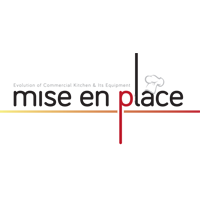 MISE EN PLACE ASIA
MISE EN PLACE ASIA
A1: The perception of value when spending on hospitality will see changes. Economies affected will see a lower spending power, though of course, those with their wealth unaffected will remain the same as before. This will require businesses to really look into what they can offer this “changed” group of consumers with redesigned services and products.
Increased demands for hygiene practices in operations will incur more costs and in areas where contact tracing and distancing exercises create long queues, a business will need to address this with new options to keep their customers from moving to another.
A3: It is important that we support one another through this trying time and be open to adapting to changes. What worked before might not be applicable now and this is where thinking differently is going to lead the way. Some F&B businesses and manufacturers in different sectors have made strides in creating a new category of business. PIVOT might just be the name of the new game.
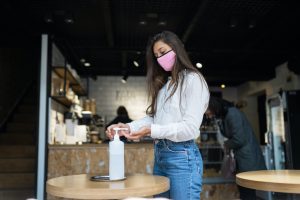
As we continue to battle the virus and work hard to rebuild, recover and restart, the road ahead may be arduous with too many questions that are still unanswered. Do we go full on delivery? Is it the best time to expand with lower rental costs? Or should we consider winding up the business?
These are hard questions to answer when everyone is still in battle mode; our hope is that with the industry coming together, blue skies will be seen ahead soon and light will shine at the end of the tunnel.
In the meantime, stay safe, stay strong and stay positive!
href="#" data-color-override="false" data-hover-color-override="false" data-hover-text-color-override="#fff">Button Text
